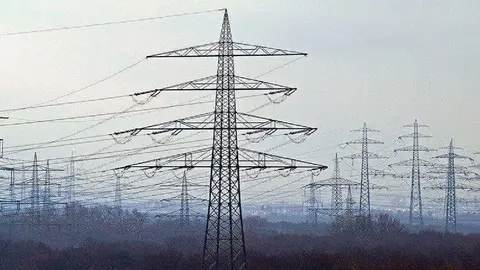A historic power outage paralyses Spain and Portugal for almost 11 hours

An unprecedented blackout left much of Spain and Portugal in darkness on Monday, disrupting rail transport, telecommunications, access to cash at ATMs and causing widespread chaos across the Iberian Peninsula. The collapse, which began at midday, caused the sudden loss of 15 gigawatts of power in just five seconds, or 60% of national demand, according to Spanish Prime Minister Pedro Sánchez.
The power outage affected millions of citizens and left some 35,000 passengers stranded on more than 100 trains. At 11 p.m. on Monday, 11 trains were still waiting to be evacuated, according to Sánchez.
Closed offices, gridlocked traffic in Madrid and Lisbon, citizens directing traffic in Barcelona and airports operating on backup systems were some of the most striking scenes of a day that put Europe on alert. In addition, Internet traffic plummeted by 90% in Portugal and 80% in Spain, according to data from Cloudflare Radar.
Red Eléctrica, Spain's electricity distribution company, described the event as ‘exceptional and extraordinary.’ Although by 5:00 a.m. on Tuesday, more than 92% of the electricity supply in Spain had been restored, Sánchez assured that it would be fully restored during the day for the country's 48 million inhabitants.
The blackout also severely affected Portugal, where the government called an emergency meeting at the residence of Prime Minister Luis Montenegro. According to official Portuguese sources, the failure originated outside the country, possibly in Spain. Both governments remained in constant contact and coordinated efforts to restore power.
The Portuguese National Cybersecurity Centre and European Commission Vice-President Teresa Ribera initially ruled out a cyberattack, although Sánchez clarified that ‘no hypothesis is being ruled out’. The authorities also pointed to a possible break in the electricity connection with France as one of the triggering factors.

To alleviate the crisis, the Spanish government began importing electricity from Morocco and France, as well as increasing production at hydroelectric and combined cycle thermal power plants. At the same time, the Spanish army deployed generators and other resources to the most affected areas, and the Ministry of the Interior declared a state of national emergency, deploying 30,000 police officers to maintain order.
The Canary Islands, the Balearic Islands, Ceuta and Melilla were not affected by the outage, which did affect the mainland, where nearly 60 million people live. The blackout comes just six weeks after another serious incident in Europe, when a fire at Heathrow Airport disrupted flights in the United Kingdom.
Authorities in Spain and Portugal state they have not yet “ruled out” a cyberattack as the cause for today’s major nationwide power outage, which halted rail lines across both countries and resulted in the closure of airports in Madrid, Barcelona, and Lisbon. pic.twitter.com/BZuuefZwr2
— OSINTdefender (@sentdefender) April 28, 2025
Although Europe has suffered major blackouts in the past, such as in Italy in 2003 and Germany in 2006, the scale and scope of Monday's event make it one of the most serious energy incidents recorded on the continent in recent times.
Investigations are ongoing and authorities insist on keeping all possibilities open, from an internal technical failure to a cyberattack. Meanwhile, the governments of both countries are working to strengthen their networks and address future challenges.










